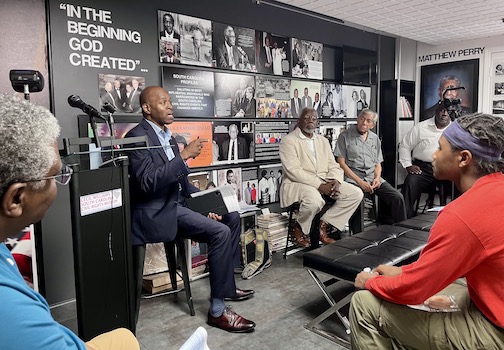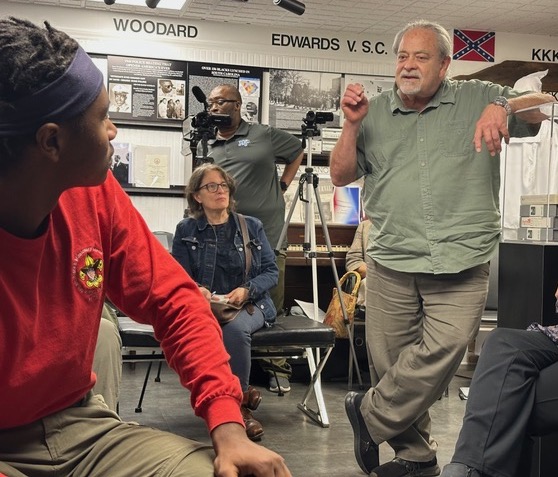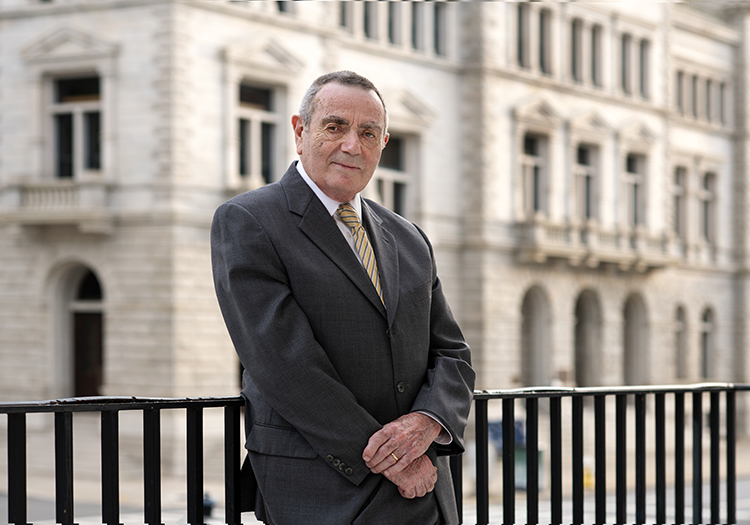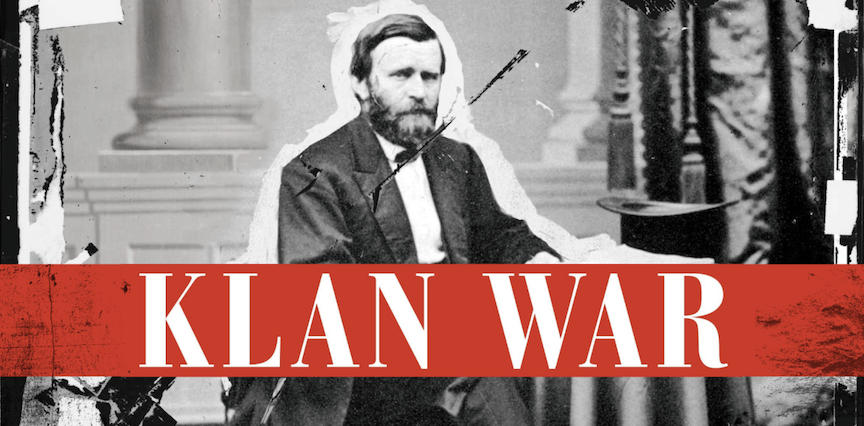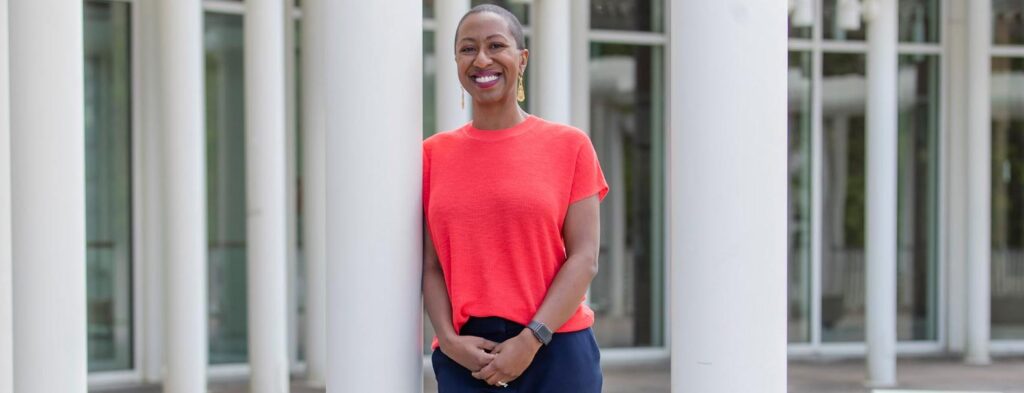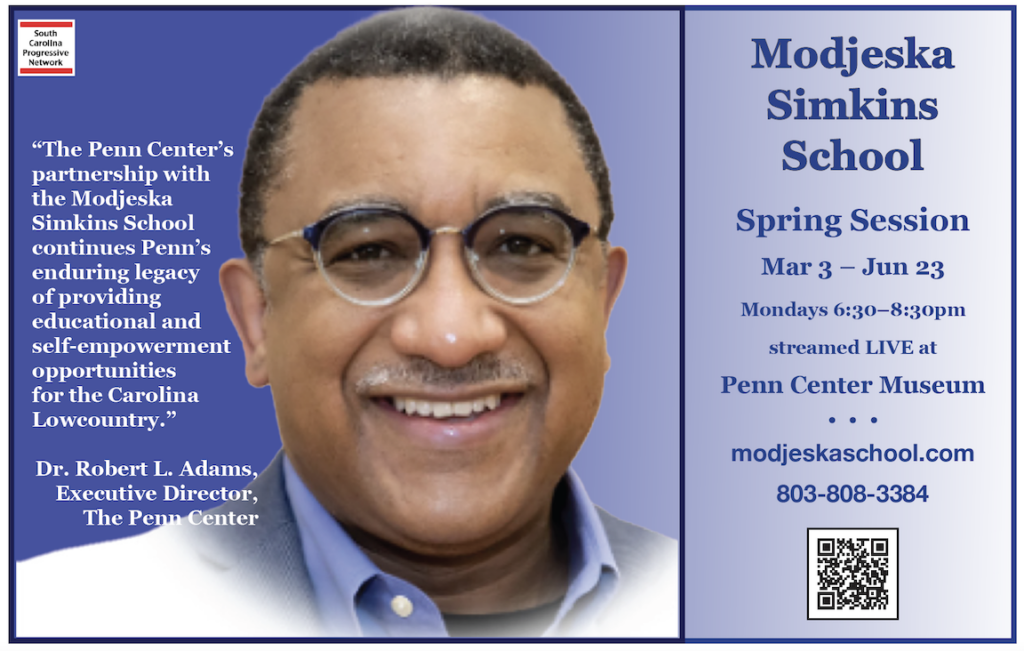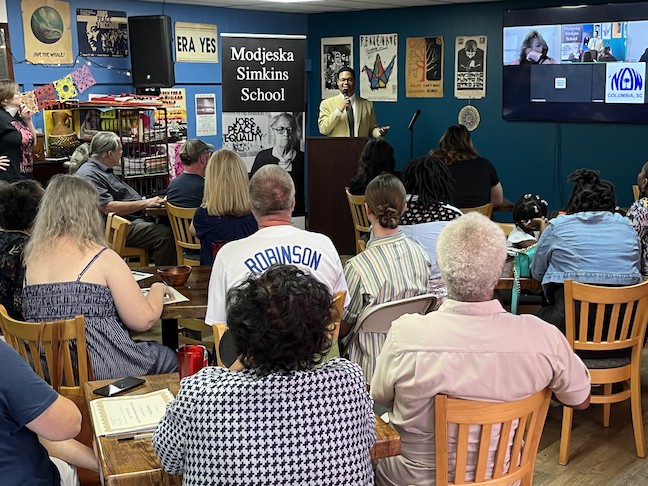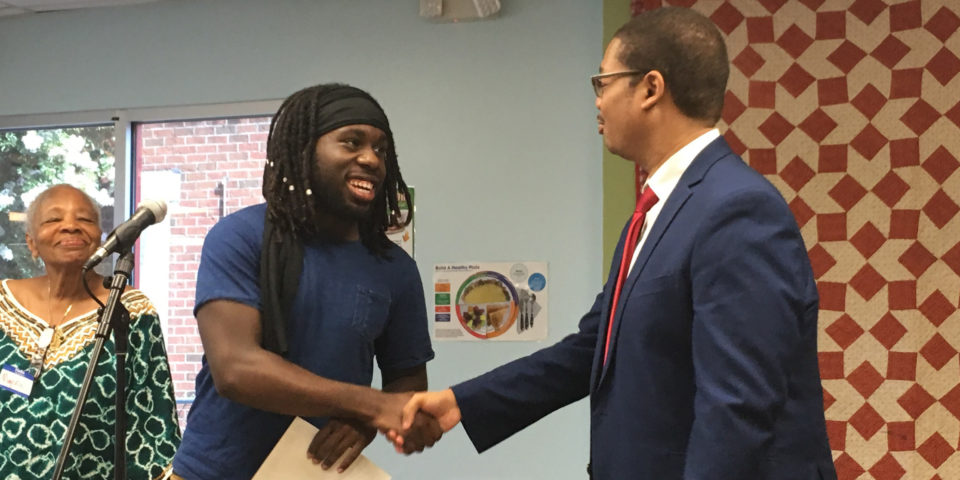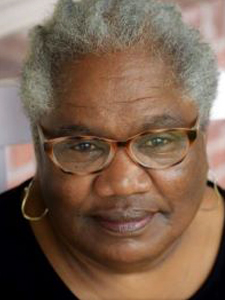To broaden access to the Modjeska Simkins School for Human Rights beyond its home base in Columbia, this semester students can participate from locations in Sumter, Orangeburg, and St. Helena Island, where classes will be streamed live.
“We hope this will become a model for collaborating with allied groups and communities across South Carolina,” said Brett Bursey, executive director of the SC Progressive Network, which launched the school in 2015.
Since the pandemic hit in 2020, the school has offered students the option to attend online, which allows people to participate from wherever they reside — even out of state. This new hybrid option lets students meet as a group at remote sites to view classes together, giving them the shared experience that is central to the program — and to building community that lasts beyond the semester.
“You deepen the experience by sharing the experience,” Bursey said. “The course covers challenging subjects, and it is good to have someone you can process it with after class.”
“It is an honor to partner with such esteemed institutions as the Cecil Williams SC Civil Rights Museum and Penn Center,” Bursey said. The Penn campus has a unique and storied history, beginning in 1862 as a school for freed people and later serving as an organizing hub during the modern civil rights movement, where luminaries such as Dr. Martin Luther King Jr. met to map strategy.
“The Penn Center’s partnership with the Modjeska Simkins School continues Penn’s enduring legacy of providing educational and self-empowerment opportunities for the Carolina Lowcountry,” said Dr. Robert L. Adams, the Center’s executive director.
“Informed citizens, who are the cornerstone of American democracy, are nurtured by the rich intellectual experience and critical thinking skills offered by the Modjeska Simkins School. We are proud to extend the reach of such an important program.”
This is a full-circle moment for the Network, which held its first organizing meeting at Penn in 1996 and has returned there over the years for its statewide conferences.
The simulcast location in Sumter has been coordinated by Network staff member James Felder, who in 1970 was among the first Black legislators elected in South Carolina since Reconstruction.
Noted photographer Cecil Williams will host the Orangeburg group at the SC Civil Rights Museum, which he curates and operates. “The South Carolina civil rights stories are too important to be unheard,” Williams said. “We welcome partnering with the Modjeska School to change all that.”
Dr. Robert Greene II, a professor of history at Claflin University — and president of the national African American Intellectual History Society — has served as the Modjeska School’s lead instructor since 2019. “The school remains a bulwark for truth against disinformation,” Greene said. “At the Modjeska School, we believe in not only learning history for the sake of knowing our past, but learning how to think critically and how to think democratically. Contrary to popular belief, there is a tradition of human rights—exemplified by Modjeska Simkins herself—in South Carolina.”
The curriculum, reflecting the Network’s state-based, nonpartisan strategy, focuses on South Carolina, which continues to play an over-sized role in our nation’s politics. The course material is ever-evolving to include the latest research and historical analyses.
The school welcomes anyone interested in understanding and better navigating our state’s social and political landscape. If you are a lover of history, an activist seeking to be more effective, a retired person wanting to get involved in your community, or a transplant who wants to know the peculiar history of South Carolina, this course is for you.
Whether attending in-person or online, all students have full access to class study guides, special programs, and Sunday Deep Dives.
The spring session begins with orientation on March 1. Classes meet Mondays 6:30–8:30pm through June 23. Students can participate on Zoom or in-person at these locations:
• Columbia at GROW, 1340 Elmwood Ave.
• Sumter at the South Sumter Resource Center, 337 Manning Ave.
• Orangeburg at the South Carolina Civil Rights Museum, 1865 Lake Dr.
• St. Helena at the Penn Center Museum
Tuition is based on a sliding scale, and limited full scholarships are available. For details about the school or to apply, click HERE.

